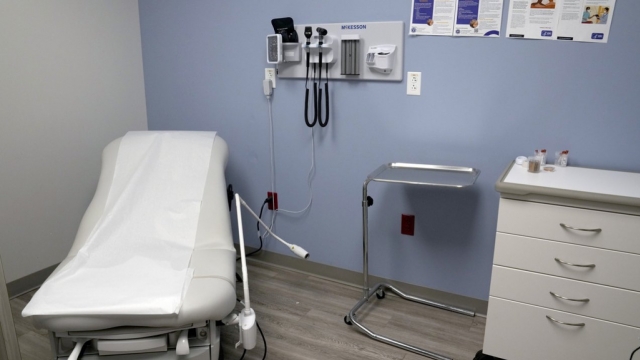Over the last year, Idahoans enacted several laws chipping away at the right to abortion care, including a ban on the procedure after six weeks except for reported rape or incest or life saving measures.
"Physicians are literally having to ask hospital attorneys, 'Hey, is a 20% chance of death high enough that I can act in this situation?' And in many cases, being told 'No,' because these laws are so restrictive, or so vague in some cases, and sending women home until they get sicker. This is incredibly reckless, and it's dangerous," said American Medical Association President Dr. Jack Resneck.
It is now also illegal for an adult to help a minor get an abortion across state lines without parental consent. It's a felony that comes with up to a five-year prison sentence, even if the adult is helping a child raped by a parent. The adult can also be sued by the parent or guardian.
Dozens of states require parental involvement, but this is the first state to criminalize not having a parent involved.
"It's a completely, just butchering of human rights to say you can't do this," said lifelong Idahoan Paige Erbele.
"If women are going through those lengths to cross state lines, it is for their own benefit and further health — for the betterment of them, their family, everyone around them," added Michaela Green.
SEE MORE: Doctor faces discipline hearing over 10-year-old Ohio girl's abortion
This month, a district judge upheld an injunction preventing doctors from providing abortions in emergency situations. That same judge is expected to decide another case that would allow the criminal charging of doctors for referring patients to out-of-state abortion providers.
Michaela Green and Paige Erbele both grew up in Idaho and chose the University of Idaho for their college experience — yet, they say they don't want to stay, in part because of how extreme views have gotten.
"There's not a lot of in-between," Green explained. "And so, I think that's why there's been a lot of unrest is because people are just very adamant about their beliefs and don't want to hear anyone out."
Republicans say the bill is about child protection alone.
"The parents need to know when their child has an issue with that. You don't need people kidnapping children and taking them outside the state. I think this helps not only children but then parents and the knowledge parents have," said Idaho Speaker of the House Mike Moyle.
The bill passed overwhelmingly in both the state House and Senate. The new legislation is already having a trickle-down effect.
"We have seen story after story of OBGYNs who are facing tough decisions about this community that they live in that they are so tied to. 'Is it even safe to practice medicine here anymore under the scrutiny of having state attorneys general sitting on my shoulder in the exam room?' And some of them are making the difficult decision to leave," said Dr. Resneck.
SEE MORE: Some red state residents moving due to new abortion laws
At least one hospital in the state, Bonner General, has discontinued its labor and delivery services, and studies looking at maternal mortality are being shut down this summer. Resneck says medical students applying for residency this year are less likely to apply for programs including OB and emergency medicine in states like Idaho.
"We're going to have a workforce crisis where patients in these restrictive states are going to have a tougher and tougher time finding doctors," he explained.
The Guttmacher Institute, a reproductive health organization, says women in the state could be forced to travel between 222 and 429 miles for care, depending on how far along they are. Idaho is one of 13 states where the procedure is effectively banned.
Erbele says these laws won't stop people from seeking care.
"Abortions, no matter what, are gonna happen," she said. "And if they are banned here, and also you can't cross state lines, they're still gonna happen. They're just going to be really, really unsafe."
The Idaho trafficking bill could set up a border war with neighboring states like Washington and Oregon — some of the most lenient states for abortion laws — where legislators are currently working on shield laws for doctors who work in reproductive health.
Trending stories at Scrippsnews.com



